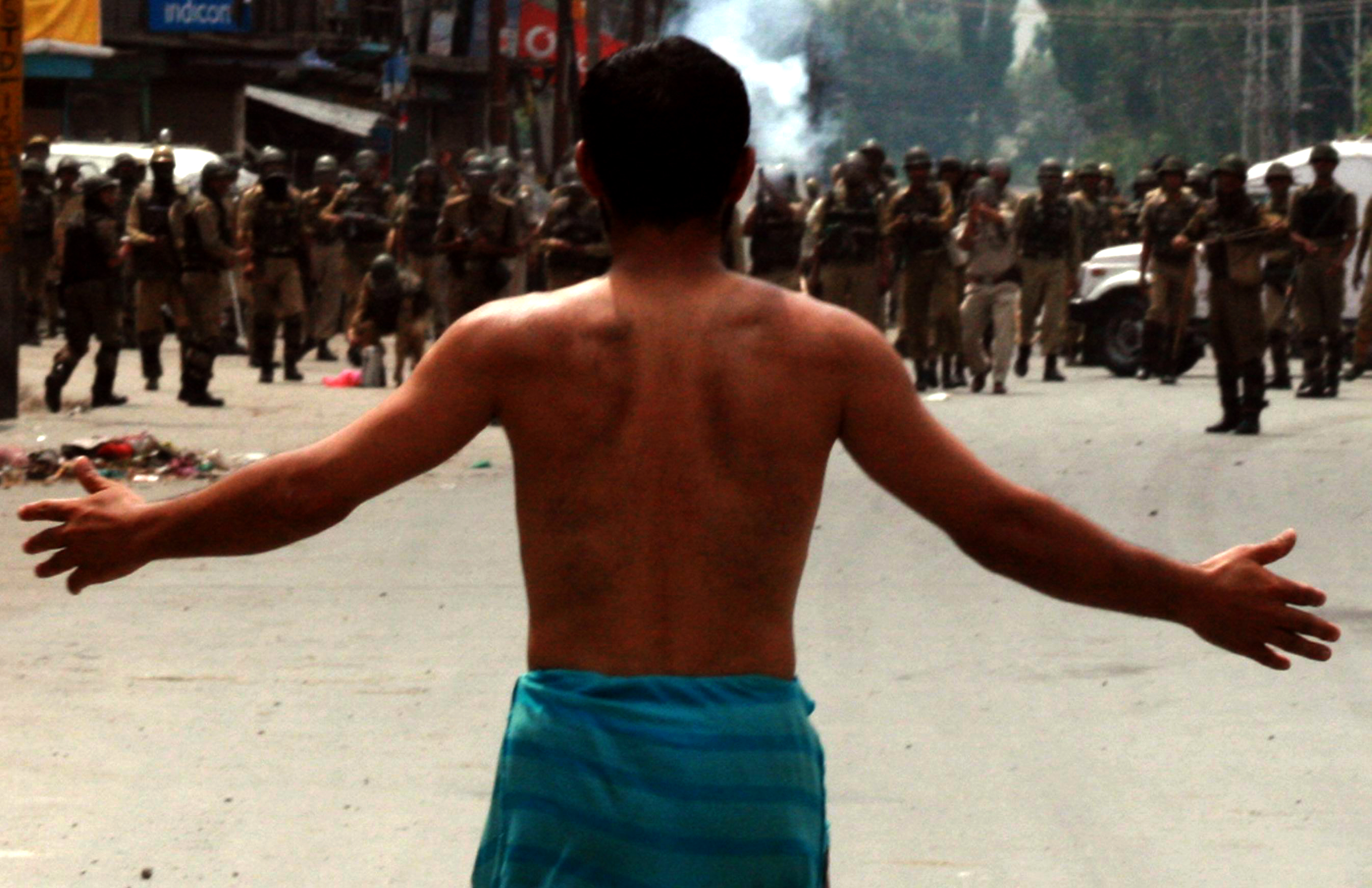Kashmir is claimed in full by both Pakistan and India, after being partitioned between the two countries in 1947, with a ceasefire demarcation known as the Line of Control. China also administers part of the state. With three nuclear-armed countries vying for territory in a strategically critical region, Kashmir is a tinderbox; clashes there cause anxiety to the rest of the world.
By:Rani Singh
Classified as the world’s most militarized zone as well as the largest region occupied by security forces, Kashmir has been experiencing a level of violence that it has not seen in six years.
The death of a militant, Burhan Wani, in a gun battle with Indian government troops on July 8th 2016 triggered days of protests and killings.
At the time of writing, Local and National Media reported 45 dead and 2800 injured, with all 10 districts under curfew. The numbers may rise.
As of the morning of the 12th July, India was sending in an extra 800 troops.
Kashmir is claimed in full by both Pakistan and India, after being partitioned between the two countries in 1947, with a ceasefire demarcation known as the Line of Control. China also administers part of the state. With three nuclear-armed countries vying for territory in a strategically critical region, Kashmir is a tinderbox; clashes there cause anxiety to the rest of the world.
22-year old Wani was a militant, a commander with the outlawed group, Hizbul Mujahideen. He was different to his predecessors who performed armed warfare, for he was open about his identity. Previous militants mostly worked underground, in secret, but Wani kept his face uncovered. He was active on social media and had garnered a large following due to his public pronouncements on the behavior of the Indian Government and its security forces in Jammu and Kashmir.
Positions on the Jammu and Kashmir issue are entrenched and polarised; with India and Pakistan having long argued their respective cases concerning the mainly Muslim state. Some of the Kashmiri population demands autonomy, or the right to self-determination.
India claims that the matter is an internal issue – one that it can resolve, while Pakistan seeks international involvement.
The UN has felt the need to comment on the latest bout of violence. As The Hindu reports,
U.N. chief Ban Ki-moon calls on all parties to exercise ‘maximum restraint’ to avoid further violence in Kashmir and hopes that all concerns would be addressed through peaceful means. The Secretary-General is closely following the recent clashes in Kashmir. He regrets the reported loss of dozens of lives and the injuries to many others,’ says a statement issued by Mr. Ban’s spokesperson.
While the two giant neighbours fight, squabble, and have gone to war over the disputed territory, successive generations of Kashmiris have grown up highly politicised, with strikes, disruption and conflict a way of life.
On my own visits to report for the BBC over the years of the insurgency, I have observed the stress that all sides in the Valley experience.
Children and young people find it difficult to maintain a steady academic career as schools and colleges get shut down on account of strikes, or hartals.
Women and girls, in particular, psychologists told me, suffer from a higher than average level of depression and feinting due to the strain of living in a conflict zone.
The SMHS Medical College Hospital in Srinagar is generally full to overflowing. I found that as a government hospital in a conflict zone it still suffers from a lack of resources, with facilities like lavatories often kept in unsanitary conditions. This is far from ideal for patients suffering from disease, injury sustained in conflict and other ailments.
In the valley’s main psychiatric hospital, I found patients sitting outside on steps, and on stone floors in corridors. They had been there, seemingly, for hours, waiting, listless and forlorn, without supervision or any sign of attention.
Rani Singh is a reputed International Author and Journalist working with BBC & Forbes India and also writing for many print and online outlets.She has conducted interviews of many famous world dignitaries and leaders.



